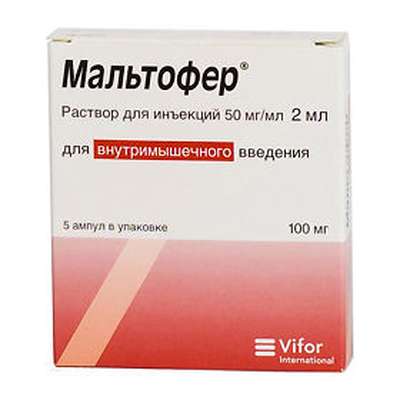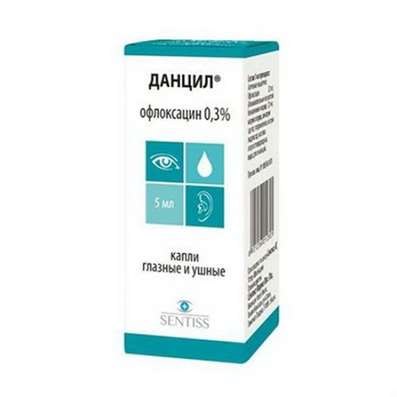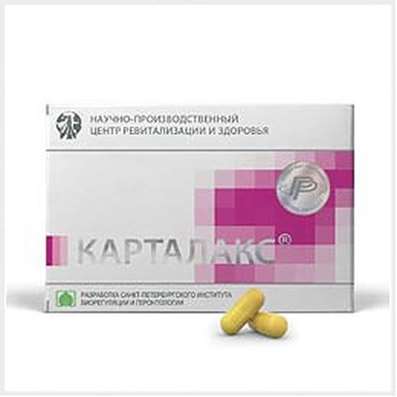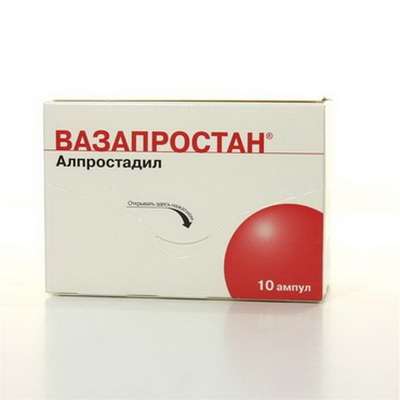Instruction for use: Vaccinum BCG for immunotherape cancer of vesica urinaria
I want this, give me price
Trade name of the drug Imurīn-vac, Uro-BCG-medac
The Latin name of the substance Vaccinum BCG for immunotherape cancer of vesica urinaria
Vaccinum BCG for immunotherape cancer of vesica urinaria (genus. )
Pharmacological group:
Vaccines, serums, phages and toxoids
Nosological classification (ICD-10)
C67 Malignant neoplasm of bladder: Metastatic bladder cancer; Tumor of the bladder; Bladder cancer; Bladder cancer superficial; Malignant tumor of the bladder; Malignant neoplasms of the bladder; Bladder carcinoma; Transitional cell carcinoma of the bladder; Tumors of the bladder
D09.0 Bladder: Bladder carcinoma
Characteristics of substance Vaccinum BCG for immunotherape cancer of vesica urinaria
Immunomodulating agent.
Pharmacology
Pharmacological action - immunostimulating, antitumor.
Pharmacodynamics
BCG vaccine for immunotherapy of bladder cancer is a culture of microbial cells of the vaccine strain BCG-1 (M.bovis BCG-1, Russia) lyophilized in a 1.5% solution of sodium glutamate monohydrate.
The vaccine stimulates the immune system and has antitumor activity.
With intravesical instillation, BCG acts as a nonspecific immunomodulator, triggering a whole complex of immune reactions involving a number of immune system cells, including T and B lymphocytes, macrophages, a number of cytokines.
Pharmacokinetics
After instillation of mycobacteria BCG into the bladder, they bind to fibronectin and attach to the wall of the bladder. The remainder is excreted in the urine in the first hours after instillation. The possibility of penetration of mycobacteria through the mucous membrane of the bladder has not been proven.
Application of the substance Vaccinum BCG for immunotherape cancer of vesica urinaria
Treatment of non-invasive urothelial bladder cancer:
- treatment of pre-invasive Tis cancer (carcinoma in situ).
Prevention of recurrence of bladder cancer after radical treatment:
- stage Ta (carcinoma, infiltrating only the mucosa of the bladder): Ta G1-G2 with multifocal and / or recurrent tumors; Ta G3;
- stage T1 (a tumor infiltrating the subepithelial connective tissue and not affecting the muscular layer of the bladder);
- Stage Tis (preinvasive carcinoma, carcinoma in situ).
Contraindications
Hypersensitivity; Active form of tuberculosis; Previous tuberculosis; Size of local response to IV infusion of tuberculin in a dose of 2 TE (Mantoux test) 17 mm or more; Congenital or acquired immunodeficiency due to concomitant diseases (eg HIV infection, leukemia, lymphoma), treatment of malignant neoplasms (eg, cytostatics, irradiation) or immunosuppressive therapy (eg GCS); Acute cystitis or macrohematuria (before the disappearance of clinical manifestations); Perforation of the bladder; Severe concomitant diseases in the stage of decompensation.
Traumatic catheterization or the appearance of blood after a catheterization of the bladder are contraindications for instillation of BCG on a given day.
BCG therapy can be started no earlier than 2-3 weeks after transurethral resection of the bladder (TUR), bladder biopsy or traumatic catheterization (depending on wound healing speed).
Not recommended for use in children due to lack of data on efficacy and safety.
Restrictions
Low bladder capacity (less than 150 ml); Radiation therapy of a bladder in the anamnesis.
Application of pregnancy and breastfeeding
Not recommended (no clinical studies have been performed).
Side effects of the substance substance Vaccinum BCG for immunotherape cancer of vesica urinaria
Side effects are grouped according to the frequency of manifestation, within each group the effects are arranged in order of decreasing severity.
Very often (> 1/10)
General complications: a feeling of discomfort, nausea, malaise, chills, fever.
Diseases of the urinary tract: cystitis and inflammatory (granulomatous) reactions from the bladder, frequent urination accompanied by unpleasant sensations and pain.
Violations of the reproductive system: asymptomatic granulomatous prostatitis.
From the immune system: transient systemic reaction to BCG (fever with a temperature of up to 38.5 ° C, flu-like symptoms).
Often (> 1/100, <1/10)
Common disorders: fever with a temperature above 38.5 ° C.
Infrequently (> 1/1000, <1/100)
Infections: development of severe systemic BCG reactions / infections.
On the part of the hematopoiesis system: cytopenia, most often erythropenia, manifested as anemia.
From the immune system: Reiter's syndrome (conjunctivitis, asymmetric oligoarthritis, urethritis).
Respiratory system disorders: miliary pneumonia, pulmonary granuloma.
From the hepatobiliary system: hepatitis.
Skin changes, skin rash, cutaneous abscess.
From the musculoskeletal system: arthritis, arthralgia, in most cases a manifestation of a hypersensitivity reaction to BCG.
From the urinary system: the development of urinary tract infections, macrogematuria, retraction of the bladder, urinary tract obstruction, bladder contracture.
From the genitourinary system: orchitis, epididymitis, granulomatous prostatitis with severe symptoms.
Common disorders: decreased blood pressure.
Rarely (> 1/10000, <1/1000)
Vascular disorders: development of vascular infectious disease (eg, infected aneurysm).
Kidney disease: kidney abscess.
Infections: BCG-associated sepsis.
Very rarely (<1/10000), including individual messages
Infections: BCG infection of implants and adjacent tissues (eg infection of an aortic graft, cardiac defibrillator, arthroplasty of the tachometric or knee joint).
From the side of the lymphatic system: cervical lymphadenitis, infection of pelvic lymph nodes.
On the part of the immune system: allergic reactions (manifested in the form of symptoms such as swelling of the eyelids).
On the part of the organs of vision: chorioretinitis, conjunctivitis, uveitis.
Vascular disorders: vascular fistula.
Gastrointestinal disorders: vomiting, intestinal fistula, peritonitis.
Lesion of the musculoskeletal system and connective tissue: infection of the bone marrow, osteomyelitis, abscess of the lumbar muscles.
From the genitourinary system: orchitis, epididymitis, resistant to anti-tuberculosis therapy, the development of infection of the head of the penis.
Frequency is unknown (cannot be estimated based on available data)
Violations of the reproductive system: it is possible to develop such symptoms, such as vaginal pain, dyspareunia (pain during intercourse).
Adverse reactions with BCG vaccine are often observed, but usually are not severe and usually are transient. As the number of instillations increases, the risk of side effects increases.
Developing sometimes arthritis / arthralgia, skin rash may be manifestations of hypersensitivity reactions to BCG. In such cases, it may be necessary to cancel therapy with the drug.
Local adverse reactions
Unpleasant sensations and pain when urinating, as well as frequent urination, are observed in 90% of patients. Cystitis and inflammatory (granulomatous) reaction can be an integral part of the antitumor activity of the drug.
Transient systemic BCG reactions
After instillation of the BCG vaccine, there may be a rise in body temperature up to 38.5 ° C, flu-like symptoms and general malaise - these symptoms usually subside after 24-48 hours; In case of their development, a standard symptomatic treatment is necessary. These symptoms are signs of a beginning immune reaction. All patients who are prescribed instillations should be closely monitored and instructed to report all episodes of fever and other reactions not related to the genito-urinary tract.
Severe systemic adverse reactions / infections
Systemic reactions / infections include fever with a temperature above 39.5 ° C for at least 12 hours; Fever with a temperature above 38.5 ° C for at least 48 hours; Miliary pneumonia caused by BCG; Granulomatous hepatitis; Deviation of indicators characterizing liver function; Violation of the functions of internal organs, not related to the genitourinary system, caused by granulomatous inflammation, confirmed by biopsy; Reiter's syndrome. Severe infections caused by BCG vaccine can lead to sepsis.
Therapeutic recommendations for the treatment of symptoms and syndromes arising during the administration of BCG vaccine
1) Symptoms of irritation of the bladder lasting no more than 48 hours. Perform symptomatic treatment.
2) Symptoms of irritation of the bladder for> ≥48 hours. It is necessary to interrupt vaccine therapy and begin treatment with quinolones. If after 10 days of complete disappearance of symptoms is not observed, it is necessary to appoint a course of treatment with isoniazid * duration of 3 months.
In the case of antituberculous therapy, treatment with a vaccine should be canceled.
3) Concomitant bacterial infection of the urinary tract. Treatment with the vaccine should be postponed until the completion of the course of antibiotic therapy and the normalization of urinalysis.
4) Other undesirable effects from the urogenital tract: granulomatous prostatitis, epididymitis and orchitis, obstruction of the urinary tract, kidney abscess. Discard vaccine treatment.
To prescribe a course of treatment with isoniazid * and rifampicin * for a duration of 3-6 months, depending on the severity of the case.
In the case of antituberculous therapy, treatment with a vaccine should be canceled.
5) Fever with a temperature <38,5 ° C less than 48 hours. Symptomatic treatment with paracetamol.
6) Skin rash, arthralgia or arthritis, Reiter's syndrome. Interrupt vaccine therapy.
Assign antihistamines or NSAIDs.
If there is no response to ongoing therapy, prescribe a course of treatment with isoniazid * lasting 3 months.
In the case of antituberculous therapy, treatment with the vaccine should be completely abolished.
7) Systemic BCG reaction / infection without signs of septic shock. Discard vaccine therapy.
Consider the need for consultation with an infectious disease doctor. To prescribe a 6-month course of anti-tuberculosis therapy * with the use of three drugs.
8) Systemic BCG reaction / infection with signs of septic shock. Discard vaccine treatment.
Immediately appoint a course of antituberculous therapy * three drugs in combination with high-dose rapid-action therapy.
Consult with an infectious disease doctor.
* Caution: BCG bacteria are susceptible to all modern anti-tuberculosis drugs, except for pyrazinamide. If it is necessary to carry out antituberculous therapy with the use of three drugs, a combination of isoniazid, rifampicin and ethambutol is usually recommended.
Interaction
BCG bacteria are sensitive to anti-tuberculosis drugs (eg ethambutol, streptomycin, PASK, isoniazid and rifampicin), antibiotics, antiseptics. The resistance of BCG to pyrazinamide and cycloserine was observed.
During the course of intravesical instillations of BCG, simultaneous administration of antituberculosis drugs and antibacterial drugs such as fluoroquinolones, doxycycline or gentamicin should be avoided, due to the sensitivity of BCG to these drugs.
The BCG vaccine is pharmaceutically incompatible with hypotonic and hypertonic solutions. Compatible only with 0.9% solution of sodium chloride for injection.
Overdose
There are no data indicating that an overdose can cause symptoms other than the described side reactions.
Routes of administration
Intravesical.
Precautions for the substance Vaccinum BCG for immunotherape cancer of vesica urinaria
The BCG vaccine should not be used for SC, IV, IM, or IV, or for vaccination purposes.
The patient should be warned about the possibility of complications of BCG therapy. When a systemic reaction to a BCG vaccine occurs, a phthisiatric consultation is needed.
When BCG vaccine is used for immunotherapy of bladder cancer, side reactions are often observed, but these reactions are usually not of a serious nature and are usually transient. With the increase in the number of instillations, the risk of side effects increases.
When prescribing BCG therapy, the risk of developing severe systemic BCG reactions / infections should be considered, including fever> 39.5 ° C for at least 12 hours; Fever with a temperature> 38.5 ° C for at least 48 hours; Miliary pneumonia caused by BCG; Granulomatous hepatitis; Deviation of indicators characterizing liver function; Organ dysfunction (not related to the genitourinary system) with granulomatous inflammation, confirmed by biopsy; Reiter's syndrome.
Traumatic instillation can lead to BCG-associated sepsis with the possible development of septic shock and the risk of death.
Before each intravesical instillation of the BCG vaccine, urinary tract infection should be avoided (inflammation of the bladder mucosa may increase the risk of BCG infection by hematogenesis). If urinary tract infection is detected with BCG vaccine, discontinue treatment until antibiotic therapy is completed and urinalysis is normalized.
There have been reports of infections of implants and grafts in patients, for example, with an aneurysm.
Single cases were reported when BCG bacteria persisted in the urinary tract for more than 16 months.
In the case of fever or macrohematuria, the administration of the vaccine should be postponed until these symptoms are alleviated.
In patients with a reduced capacity of the bladder, the risk of contraction of the bladder is increased.
In the HLA-B27 group (B27 leukocyte antigen) of positive patients, the risk of developing reactive arthritis or Reiter's syndrome is increased.
The drug should not be used in the same premises, as well as those employees who are involved in the preparation of cytotoxic drugs for parenteral administration. Persons with established immunodeficiency should not work with the drug. Avoid contact with the skin and mucous membranes.
Intravesical therapy with the drug may cause the development of sensitivity to tuberculin and subsequently complicate the interpretation of tuberculin skin tests in the diagnosis of mycobacterial infection. Therefore, the tubulin test should be performed before the vaccine is prescribed.
Transmission by sexual way. Cases of sexual transmission of BCG have not yet been documented, however, a condom should be used within a week after use during sexual intercourse.
Patients undergoing treatment are advised to wash their hands and genitals thoroughly after urination.
Spilled solution of the drug should be rendered harmless by applying the methods and regimens specified in the current sanitary norms and rules for disinfection of mycobacteria.
In case of contact with skin, the contaminated area must be treated with a suitable disinfectant.

 Cart
Cart





